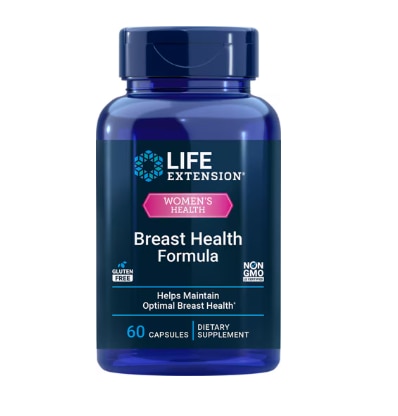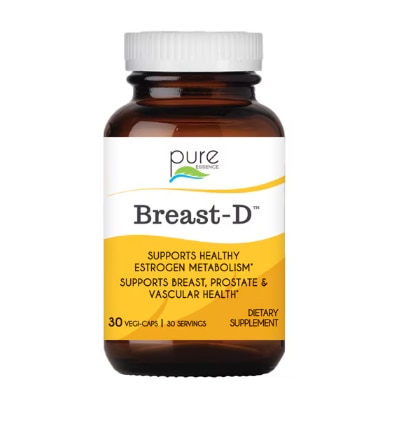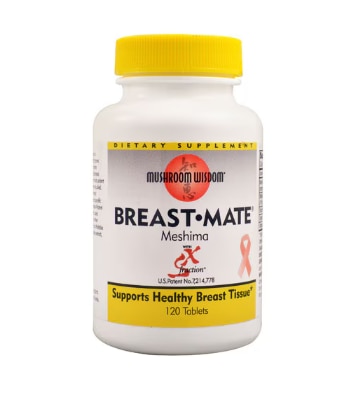October is Breast Cancer Awareness month, a time for women everywhere to reflect on what they can do to prevent one of the most dangerous health risks they face.
Breast cancer accounts for 30% of all new female cancers diagnosed annually. Among cancers, only skin cancer is more prevalent in women.

The risk of developing breast cancer is 13% for women, meaning 1 in 8 will have the disease at some point during their lives.
Unfortunately, breast cancer is not always preventable. Some risk factors are beyond your control, says Dr. Loren Rourke, a board-certified breast surgical oncologist and author of the upcoming book “Real Talk, Real Hope,” a guidebook for women navigating breast cancer.
“The biggest risk factors for breast cancer are, of course, being female and (advancing) age – neither of which we can do anything about,” she says.
How to reduce risk of breast cancer
However, there are still many actions you can take to reduce your risk of being diagnosed with the disease. They include all of the following:
Don’t drink alcohol or smoke
Avoiding these twin vices can significantly lower your risk of breast cancer.
“The two largest preventable risk factors for most cancers — including breast cancer — are long-term smoking and alcohol use, says Dr. Priya Shah, a physician at Atlanta-based Aylo Health.
Drinking a daily glass of alcohol raises your risk of developing breast cancer by between 7% and 10%, according to the American Cancer Society. Two to three drinks a day pushes the risk level higher by 20%.
Meanwhile, studies have found that women who currently smoke and who have done so for at least a decade have around a 10% higher risk of being diagnosed with breast cancer compared to women who have never smoked.
Stay fit
Research shows that being physically active may lower your risk of breast cancer, particularly in post- menopausal women.
It is unclear how much exercise is necessary to protect against breast cancer. The American Cancer Society recommends getting 150 to 300 minutes of moderate-intensity exercise weekly.
Alternatively, you can aim for between 75 and 100 minutes of vigorous exercise each week.
Lose weight
Maintaining a healthy weight also play a major role in breast cancer prevention, Shah says. “Excess body fat can raise estrogen levels that may fuel certain breast cancers,” she says.
Rourke believes that being overweight or obese is the most preventable risk factor when it comes to breast cancer. She says new data about the link between body mass index (BMI) and breast cancer is “profound and compelling.”
“Women need to stay fit and keep their BMI within the healthy range,” Rourke says. “This becomes more difficult as women navigate menopause, which is why it is important to understand the importance not just for cardiac health, but breast health as well.”
Have children at a young age
Women who do not have children or who wait until after age 30 to do so have a slightly higher risk of being diagnosed with breast cancer, according to the American Cancer Society.
On the other hand, having many pregnancies — particularly at a young age — appears to lower your risk of breast cancer. Breastfeeding your children also appears to lower the risk of breast cancer.
Despite these advantages to having children, the ACS notes that the risk of breast cancer actually increases in the first decade after having a child before falling after that.
Think twice about birth control
Taking oral contraceptives appears to slightly raise the risk of breast cancer until you stop taking the pills.
Evidence is mixed as to whether receiving birth control shots raises the risk of breast cancer. Using hormone-releasing IUDs may boost your risk, but the impact of using other types of birth control has not been closely examined.
Discuss hormone therapy with your physician
Some research has found a link between combined hormone therapy — which includes a combination of estrogen and progesterone — and a higher risk of breast cancer.
Rourke cautions women about the wisdom of using hormone pellet therapy and versions of hormone therapy “disguised in the category of ‘replacement.’”
“Women in menopause should not have estrogen levels of a teenager,” she says. “There are safe uses of hormone replacement therapy, but seek out a provider who is comfortable and knowledgeable on the data.”
Shah also recommends using caution when considering hormone therapy.
“Hormone therapy can be beneficial for some women, but it’s not ‘one size fits all,’” Shah says.
She recommends discussing your personal risk factors — such as family history or prior breast biopsies — with your health care provider before starting therapy.
“If hormone therapy is appropriate, it’s best to use the lowest effective dose for the shortest necessary duration,” Shah says.
Specific supplements and lifestyle changes can help ease menopause symptoms, she says. In some cases, this may reduce the need for hormone therapy, Shah adds.
Remain proactive
Early detection and self-awareness are some of the most powerful tools women have in the fight against breast cancer, Shah says.
“Detecting it in its earliest stage increases survival rates up to 99%,” she says.
Annual mammograms beginning at age 40 are essential, Shah says. Aylo Health uses Genius 3D Mammography, which Shah describes as the most advanced early detection technology. She says it helps identify more invasive cancers while reducing false alarms and unnecessary biopsies.
The technology can identify small masses years before cancer would be felt on exam, even by your doctor, Shah says.
“I can’t stress this enough — know your body, do your self-checks and get your annual mammogram,” she says.
Rourke agrees that remaining vigilant is the best way to reduce your risk of breast cancer.
“Understand your breast cancer risk and make sure you do screening,” she says. “Detecting breast cancer early is so important in order to have a successful outcome.”
Featured Products



The post Breast Cancer Awareness Month: Experts Share 7 Ways to Reduce Your Risk first appeared on The Upside by Vitacost.com.
